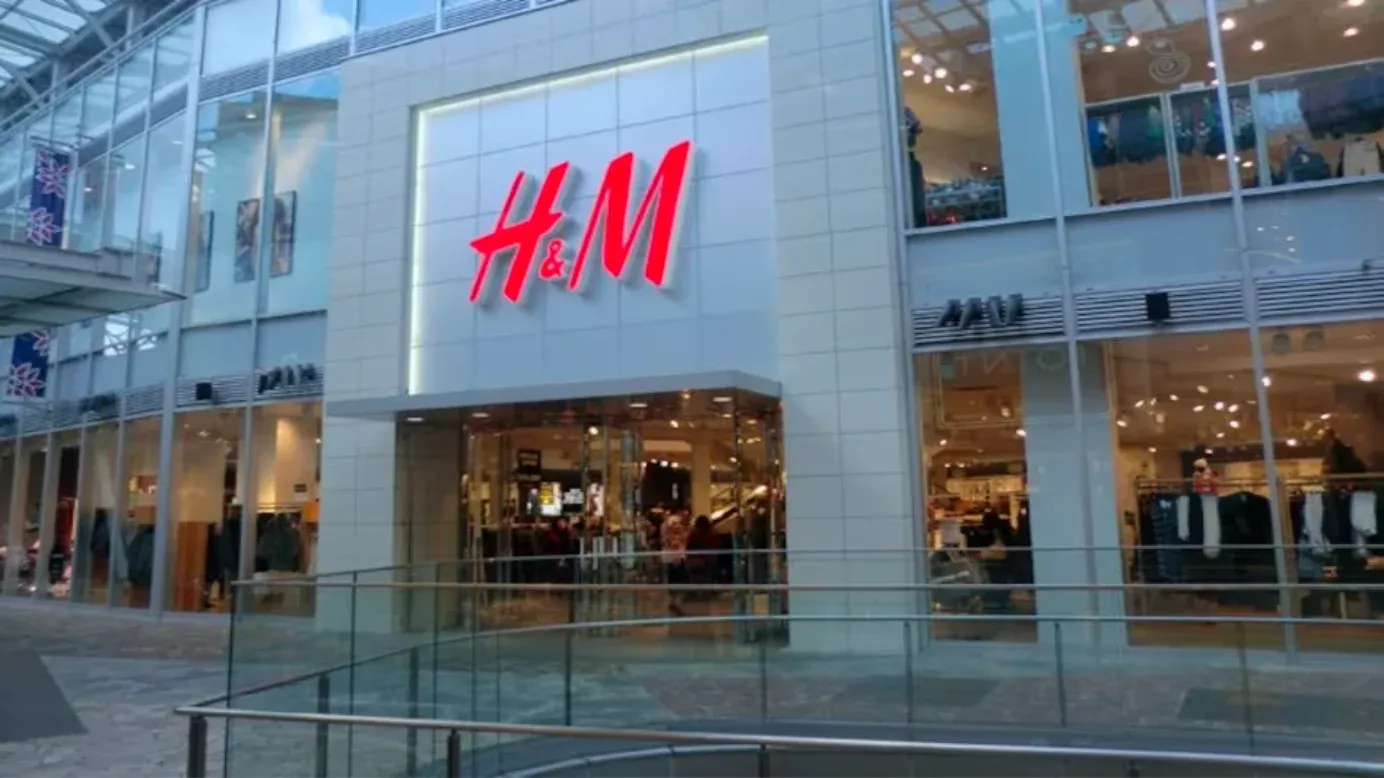في هذه الصفحة
موظفو البيع بالتجزئة هم شريان الحياة لأي متجر ناجح. غالبا ما يكونون نقطة الاتصال الأولى للعملاء ، ويمكن لأدائهم أن يصنع تجربة التسوق أو يكسرها. إن الحفاظ على تحفيزهم أمر بالغ الأهمية لنجاح عملك. أظهرت دراسة أجراها المنتدى الاقتصادي العالمي أن الموظفين المتحمسين من المرجح أن يكونوا أكثر إنتاجية بنسبة 31٪ وأن يكون لديهم مبيعات أعلى بنسبة 37٪.
نظرا لأن العاملين في الخطوط الأمامية يمثلون العلامة التجارية ويؤثرون بشكل مباشر على رضا العملاء وأرقام المبيعات ، فإن تحفيزهم له الأسبقية ، كما ترى دراسة أجرتها جامعة أكسفورد. من المرجح أن يبذل موظفو البيع بالتجزئة المتحمسون جهدا إضافيا ، وأن يقدموا خدمة عملاء استثنائية ، وأن يظلوا ملتزمين بأدوارهم.
تتمتع صناعة البيع بالتجزئة بواحد من أعلى معدلات دوران الموظفين مقارنة بالقطاعات الأخرى. في الولايات المتحدة ، غالبا ما تتجاوز معدلات الدوران 60٪ ، مع بعض التقديرات التي تشير إلى أنها أقرب إلى 100٪ لعمال التجزئة بدوام جزئي.
في هذه المدونة ، سنتعمق في الاستراتيجيات الفعالة والأساليب الفريدة لإطلاق العنان للإمكانات غير المستغلة للقوى العاملة في مجال البيع بالتجزئة ، مما يضمن بقائهم متحمسين ومشاركين ومستعدين للمساهمة في ازدهار متجرك.
سواء كنت مدير بيع بالتجزئة أو موظفا تبحث عن طرق لرفع الروح المعنوية ، ستجد رؤى قيمة لإنشاء فريق بيع بالتجزئة نابض بالحياة ومتحمس.
دعونا الغوص في!
10 استراتيجيات لتحفيز موظفي التجزئة
يعد تحفيز موظفي البيع بالتجزئة أمرا بالغ الأهمية لتوفير خدمة عملاء ممتازة وتحسين المبيعات وتعزيز بيئة عمل إيجابية. فيما يلي بعض الاستراتيجيات المجربة والحقيقية لتحفيز موظفي البيع بالتجزئة وضمان بقائهم مشاركين ومنتجين.
1. الحوافز المحببة
حول المهام اليومية إلى لعبة أو منافسة. يعزز التلعيب الرغبة الطبيعية في المنافسة والإنجاز والاعتراف. من خلال إعداد مسابقات المبيعات أو لوحات المتصدرين أو برامج المكافآت بناء على الأداء ، يمكن لأصحاب العمل إشراك وتحفيز موظفي التجزئة بطريقة ممتعة وتفاعلية.
نفذت ستاربكس برنامج "مكافآت ستاربكس" ليس فقط للعملاء ولكن أيضا للموظفين. يمكن لباريستا كسب "نجوم" لبيع المنتجات ، أو عرض خدمة عملاء مثالية ، أو إكمال وحدات التدريب.
يسمح جمع النجوم للموظفين بتحقيق مستويات معينة ، مما يؤدي إلى المكافآت والتقدير ، والتي يمكن أن تكون جوهرية وملموسة.
2. فرص التعلم والتطوير المستمر
تقديم فرص متسقة للموظفين للتعلم والنمو والتقدم داخل الشركة. يمكن أن يكون ذلك من خلال الدورات التدريبية أو ورش العمل أو حتى الدورات التي تساعدهم على صقل مهاراتهم أو تعلم مهارات جديدة.
وهذا يفيد الشركة من خلال العمال ذوي المهارات الأفضل ويعزز معنويات الموظفين وتحفيزهم لأنهم يشعرون بالتقدير ويرون طريقا واضحا للنمو داخل المنظمة.
تشتهر Apple ببرامجها التدريبية الشاملة للموظفين. يبدأ موظفو البيع بالتجزئة الجدد ، أو "المتخصصون" ، بتدريب متعدد الأيام حيث يتعرفون على الشركة ومنتجاتها وأهمية خدمة العملاء.
لا تتوقف Apple عند التدريب على المنتجات أو المبيعات فقط. يركزون على إثراء مهارات الاتصال وحل المشكلات لدى موظفيهم ، مما يضمن قدرتهم على التعامل مع سيناريوهات العملاء المختلفة. يساعد نهج التعلم المستمر هذا الموظفين على الشعور بالتقدير والاستعداد ، مما يؤدي إلى زيادة الدافع والولاء للعلامة التجارية.
3. برامج خصومات ومزايا الموظفين
يمكن لتجار التجزئة جعل موظفيهم يشعرون بالخصوصية والتقدير من خلال تقديم خصومات للموظفين على المنتجات أو برامج المزايا الحصرية. هذا يحفز الموظفين من خلال منحهم حصة شخصية في المنتجات التي يبيعونها وتعزيز اتصال أعمق وولاء للعلامة التجارية.
تقدم The Gap والشركات التابعة لها ، مثل Banana Republic و Old Navy ، للموظفين خصومات كبيرة على سلع المتجر. يحفز هذا النوع من المزايا الموظفين ويجعلهم سفراء للعلامة التجارية ، لأنهم غالبا ما يرتدون أو يستخدمون المنتجات التي يبيعونها ، مما يؤدي إلى بناء اتصال أكثر أصالة مع العملاء.
4. ردود الفعل المفتوحة واتخاذ القرارات الشاملة
غالبا ما يكون لدى الموظفين معرفة مباشرة بالحقائق على أرض الواقع ويمكنهم تقديم رؤى قيمة حول العمليات وتفضيلات العملاء والتحسينات المحتملة.
من خلال خلق بيئة يشعر فيها الموظفون بأن ملاحظاتهم تحظى بالتقدير ويمكن أن تؤثر على القرارات ، يمكن لتجار التجزئة تعزيز الدافع وتنمية الشعور بالملكية بين الموظفين.
لطالما دعمت نوردستروم ، الاسم الشهير في قطاع البيع بالتجزئة ، ثقافة التواصل المفتوح. يشجعون الموظفين على مشاركة التعليقات والأفكار بغض النظر عن رتبتهم أو دورهم.
وقد أدى ذلك إلى تحسينات تشغيلية مختلفة وعزز ثقافة يشعر فيها الموظفون بأن لديهم مصلحة حقيقية في نجاح الشركة.
5. برامج التعرف على الأقران
بالإضافة إلى الاعتراف من أعلى إلى أسفل ، فإن تمكين الزملاء من التعرف على بعضهم البعض والاحتفاء به يمكن أن يعزز الشعور بالصداقة الحميمة والتحفيز. يمكن للموظفين ترشيح أقرانهم ل "موظف الأسبوع / الشهر" أو استخدام نظام النقاط حيث يمكن للأقران إعطاء نقاط لبعضهم البعض للعمل الجماعي أو التميز في خدمة العملاء أو الأفكار المبتكرة. يمكن استبدال هذه النقاط لاحقا بالمكافآت.
نفذت شركة هول فودز بنجاح عملية مراجعة الأقران حيث تقوم الفرق بتقييم ما إذا كان يجب على الموظف الجديد تجاوز فترة الاختبار. يضمن هذا النهج القائم على الأقران أن يكون لكل شخص رأي في بناء فريقه ويحفز الموظفين بشكل طبيعي على العمل بشكل تعاوني وداعم.
6. مساحات استراحة إبداعية
يمكن أن يكون تجديد غرفة الاستراحة التقليدية إلى مساحة أكثر استرخاء وجاذبية حافزا فريدا. ضع في اعتبارك إدخال عناصر مثل المقاعد المريحة أو النباتات أو ألعاب الطاولة أو حتى مكتبة صغيرة.
الفكرة هي تقديم استراحة ذهنية حقيقية للموظفين ، وتجديد شبابهم لبقية نوبتهم. هذا يدل على الاهتمام برفاههم ويمكن أن يعزز أيضا الروح المعنوية والإنتاجية.
تؤمن LUSH بقوة مساحة العمل المريحة والجذابة. قامت العديد من مواقع البيع بالتجزئة الخاصة بهم بتجديد غرف الاستراحة التقليدية إلى مساحات تعكس متعة العلامة التجارية وهويتها الأخلاقية.
مع الألوان النابضة بالحياة والمقاعد المريحة وحتى بعض "المرح والألعاب" ، يمكن للموظفين قطع الاتصال والانتعاش والعودة إلى العمل بطاقة متجددة.
7. فرص التدريب المتبادل
اسمح للموظفين بتعلم أدوار تتجاوز الوصف الوظيفي المخصص لهم. من خلال السماح لأمين الصندوق بتجربة غرفة الأوراق المالية أو مندوب المبيعات بالخوض في الترويج المرئي ، فإنك توسع مجموعة مهاراتهم وتكسر رتابة دورهم اليومي.
يمكن لهذا التنوع أن ينشط شغفهم بالبيع بالتجزئة ، ويمنحهم فهما أوسع للأعمال ، ويوفر مسارات محتملة للتقدم.
غالبا ما تقوم ايكيا بتدوير موظفيها من خلال أقسام مختلفة. يضمن هذا النهج أن يفهم الموظفون عمليات الشركة بشكل شامل.
يقدر الموظفون هذا لأنه يضيف تنوعا إلى أدوارهم ويمنحهم مجموعة مهارات أوسع ، مما يجعل أدوارهم الوظيفية أكثر ديناميكية وإشباعا.
8. برامج النمو الشخصي والعافية
إدراكا بأن رفاهية الموظف تؤثر بشكل مباشر على أدائه وتحفيزه ، قدم برامج تركز على النمو الشخصي والعافية. يمكن أن يتراوح ذلك من ورش عمل حول إدارة الإجهاد ، أو دروس اليوغا بعد التحولات ، أو حتى توفير الموارد المتعلقة بالتخطيط المالي.
من خلال إظهار الاهتمام بالرفاهية الشاملة للموظفين ، يمكن لتجار التجزئة تعزيز الولاء والتحفيز الأعمق.
تقدم باتاغونيا ، وهي شركة بيع بالتجزئة للملابس الخارجية ، لموظفيها مزايا فريدة تؤكد التزامها بالرفاهية والنمو الشخصي. من بين هذه دروس اليوغا ، ومقهى عضوي في الموقع ، وحتى فرص لأخذ إجازة مدفوعة الأجر للتطوع.
أدى تركيزهم على ضمان رفاهية موظفيهم إلى خلق قوة عاملة متحمسة تتماشى بعمق مع قيم الشركة.
9. الانخراط في مكافآت ملاحظات "المتسوق الخفي"
تنفيذ برنامج "المتسوق الخفي" حيث لا يكون الموظفون على دراية بالوقت الذي قد يخدمون فيه مقيما سريا. بمجرد الانتهاء من التقييمات ، بدلا من التركيز فقط على مجالات التحسين ، قدم مكافآت للموظفين أو الفرق التي تتفوق في هذه التقييمات.
يمكن أن يؤدي توقع الاعتراف الإيجابي من تقييم غير معروف إلى تحفيز الموظفين على الأداء في أفضل حالاتهم باستمرار.
تستخدم سلسلة متاجر السندويشات البريطانية الدولية ، Pret A Manger ، المتسوقين السريين لزيارة كل متجر أسبوعيا. إذا تلقى المتجر تقييما متميزا ، يحصل كل موظف في هذا المتجر على مكافأة. يشجع هذا النهج الخدمة الممتازة المتسقة ويعزز روح الفريق ، حيث يستفيد الجميع من الجهد الجماعي.
10. تنفيذ "مشاريع الشغف"
اسمح للموظفين ببضع ساعات كل شهر للعمل في "مشروع شغف" متعلق بالبيع بالتجزئة من اختيارهم. يمكن أن يكون هذا تصميم عرض نافذة جديدة ، أو تنظيم حدث توعية مجتمعي ، أو حتى إنشاء حملة تسويقية جديدة في المتجر.
تسمح مثل هذه المشاريع للموظفين بتوجيه إبداعهم ، والشعور بالملكية ، والمساهمة بشكل مباشر في أجواء المتجر أو سمعة المجتمع.
على الرغم من أنها ليست شركة بيع بالتجزئة تقليدية ، إلا أن سياسة Google الشهيرة "20٪ من الوقت" سمحت للموظفين بقضاء يوم واحد في الأسبوع في العمل على مشروع لا علاقة له بوظيفتهم الرئيسية.
تم إنشاء هذه السياسة لبعض أفضل منتجاتها، مثل Gmail. يمكن لتجار التجزئة تبني نهج مماثل على نطاق أصغر ، مما يسمح للموظفين بالعمل في مشاريع متحمسون لها والتي يمكن أن تفيد المتجر.
تركز هذه الاستراتيجيات الفريدة على الجوانب الأكثر ليونة للتحفيز التي غالبا ما يتم تجاهلها ، مع التأكيد على الاحترام المتبادل بين الأقران وفترات الراحة الحقيقية لتجديد شبابك.
من خلال الاستثمار في هذه ، يمكن لتجار التجزئة تحقيق نموذج تحفيز أكثر شمولية للموظفين ، وزيادة الرضا الوظيفي وتحسين الأداء.
تعمل شركة H&M لتجارة الملابس بالتجزئة على تحسين الكفاءات المجزية مع بلوم

حرصت شركة H&M، وهي شركة أزياء عالمية بارزة تضم أكثر من 171,000 موظف وتعمل في أكثر من 73 موقعاً، على تحسين نظام مكافآت موظفيها. وبحثاً عن آلية أكثر كفاءة ومقبولة عالمياً، قامت الشركة بتقييم خدمات شركة Empuls.
التحديات
- نظام المكافآت الحالي يوزع فقط المكافآت النقدية ، والتي كانت مرتبطة براتب الموظف. أدى هذا إلى تعقيد الخدمات اللوجستية ويعني أنه تم تطبيق معدل ضريبة ثابت على المكافأة ، مما أدى إلى انخفاض قيمتها.
- واجه الموظفون في الموقع ، الذين شكلوا جزءا كبيرا من القوى العاملة ، انخفاضا في قيمة مكافآتهم بسبب أسعار تحويل العملات والضرائب الإضافية.
الحل مع البرقوق
- قدم بلوم نظام مكافآت قائم على النقاط. وكان النظام بسيطاً وفعّالاً في تخفيض النفقات العامة المتعلقة بتخصيص المكافآت ومعالجة الضرائب ومعالجة الرواتب.
- باستخدام نظام Plum، يمكن للشركة تقديم أنواع متعددة من المكافآت، مثل الجوائز القائمة على الأداء، وجوائز التثبيت، وجوائز الفريق.
- قدمت المنصة خيارات استرداد متنوعة مثل التجارب وقسائم الهدايا والامتيازات ، والتي تلبي اهتمامات الموظفين المتنوعة.
نتائج
- أصبح لدى الموظفين الآن مجموعة من خيارات المكافآت ، مما أدى إلى ارتفاع في المشاركة في برامج المكافآت.
- قدم نظام بلوم وفورات ضريبية، مما يضمن حصول الموظفين على القيمة الكاملة لمكافآتهم.
- أصبحت عملية الترشيح ومنح الجوائز مبسطة ، مما أدى إلى ترشيح 52٪ من جميع الموظفين وفوز 10٪ بجوائز في السنة المالية الماضية.
- تمتع الموظفون في الموقع بمكافآت مصممة خصيصا تناسب جغرافيتهم واهتماماتهم ، مما عزز مشاركتهم بشكل كبير.
- أظهرت ردود الفعل التي تم جمعها من خلال اختبارات "نقاط الاختبار" أن معظم الموظفين يفضلون برنامج بلوم، مما يشير إلى تحسن واضح في كفاءة الشركة في المكافأة.
استنتاج
تحفيز موظفي التجزئة هو عملية مستمرة تتطلب مجموعة من الاستراتيجيات ، بما في ذلك التواصل الواضح ، والاعتراف ، والتدريب ، وبيئة العمل الإيجابية ، والتعويضات التنافسية.
من خلال الاستثمار في رفاهية موظفيك ونموهم ، يمكنك إنشاء فريق بيع بالتجزئة متحمس ومشارك يساهم في نجاح عملك. تذكر أن الموظفين المتحمسين هم أكثر عرضة لتقديم خدمة عملاء ممتازة وزيادة المبيعات ، مما يفيد في النهاية أرباحك النهائية.


